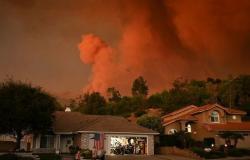Out of 89 voters, 42 votes voted for the Culs-brûlés and 25 votes for another option, the Olleysiens, says the mayor of the town of Olley.
This nice guy's decision – name of the inhabitants of a place -, was taken following a municipal consultation, organizedwith the aim of finding kindness among the inhabitants of this village, who had not had a gentile for over 1,000 years.
According to the mayor, this name of “culs-brûlés” comes from a centuries-old tradition.
“There is two hypotheses : that of the village producing oil in the Middle Ages, poor quality oil which blackened the bottom of the lamps”explains the mayor. “Or it would be linked to the Swedish invasions: the region has suffered quite a few invasions, and the Swedes burned everything in their path“.
From towns to wacky niceties
The consultation, open to all residents aged 10 and over, was organized over several days and proposed eight terms to designate the inhabitants of the village, among which “Olleyon”, “Olleumien” or “Olleyjoie”. Other proposals like “Olley hands” or “Olley hearts” had not been selected.
This kindness must now be officially adopted by the municipal council, et the deliberation will be transmitted to the prefecture.
If according to the mayor, nearly 1,000 municipalities in France do not have a gentile, we sometimes enjoy the kindness of certain towns like Culs-brûlés.
A Toulouse author Hanaé Lecasio had fun to be listed in a book entitled Kiabitou, dozens of communes in France, with unusual gentile names.
For example, we can be Sudanese or Sudanese while living in France, like the inhabitants of the town of Soudan, in Loire-Atlantique (Pays-de-la-Loire). We also think of Montcuquois, the inhabitants of Montcuq, in the Lot department (Occitanie).





